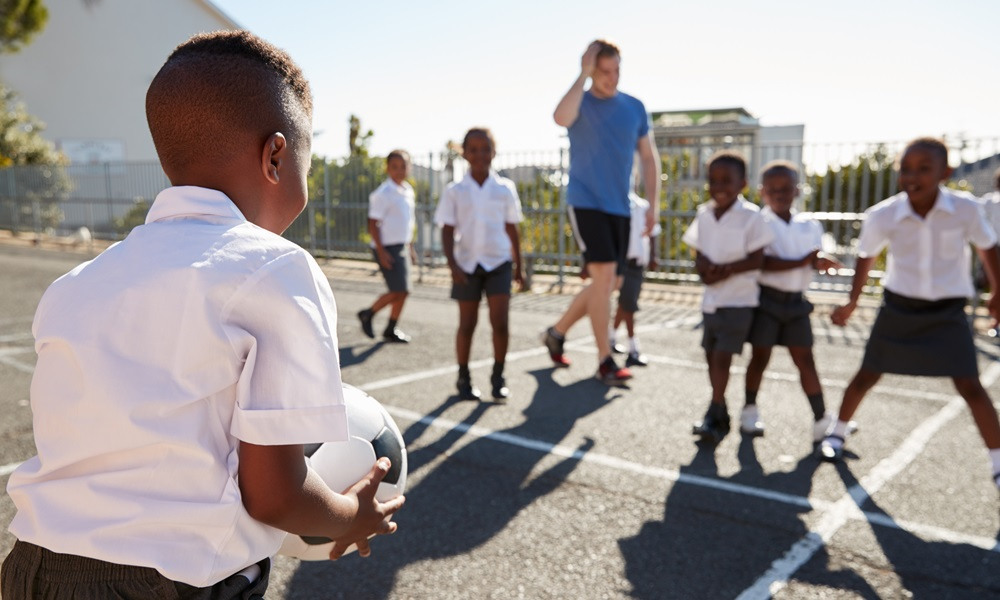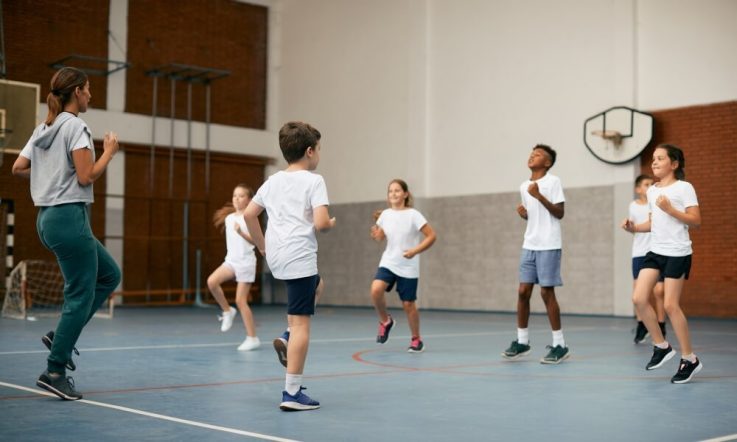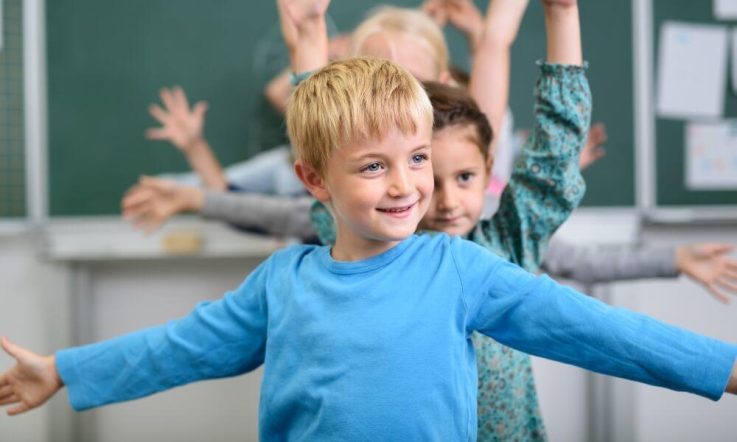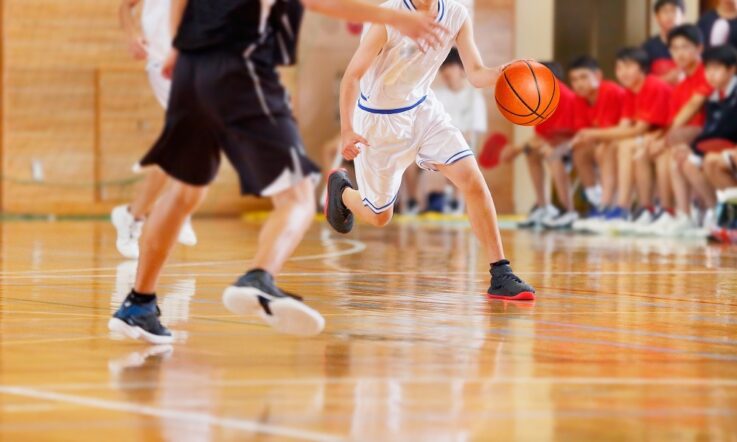It’s well known that physical activity can positively impact students’ health and wellbeing.
New research from England, published in the journal Education 3-13, has found that many children enjoy PE lessons and school sports days, but a small minority are reluctant to participate (Hamilton, et al., 2025). Reasons for the students’ enjoyment and reluctance were also uncovered, providing useful insights for you to consider for your own school setting.
Lead author Dr Paula Hamilton, Senior Lecturer at the University of Chester and Course Leader for the Master of Social Justice and Globalisation in Education, tells Teacher that the research came about after co-author Tanya Sharples – an education student at the university and teaching assistant in a primary school – became interested in understanding the reluctance shown by some children to engage in PE classes and sports day.
‘Delving into the literature, Tanya noticed a gap documenting the experiences of young children’s engagement in PE, particularly around sports day. So, as part of her studies and supported by her lecturers (Dr Paula Hamilton, a childhood specialist with an interest in children’s rights and Dr Luke Jones, also from the University of Chester, a PE specialist with significant research in the field), Tanya designed a research framework to elicit children’s perceptions and lived experiences,’ Dr Hamilton says.
The aim of the research was to uncover why a minority are more reluctant to engage in PE and sports days, with the hope that the knowledge gained through understanding these reasons could help to promote more meaningful and inclusive participation.
What do students enjoy about PE and sports days?
The study involved 29 children aged 10-11 from 2 year 6 classes in a relatively advantaged socio-economic area of northwest England, and 5 of their school practitioners. The children participated in an open-ended questionnaire and a group discussion activity. The school staff participated in semi-structured interviews.
The responses of the 29 children overwhelmingly showed that most enjoy participating in PE and sports days. Words frequently used by children to describe their experiences include: ‘fun’, ‘happy’, ‘good’, ‘exciting’ and ‘enjoy’.
Children also expressed how they benefit from participating in PE, for example, one child said a benefit is ‘socialising with friends’ and another said it ‘wakes me up so I feel alive to do things’. Another child said they enjoy the opportunity to learn new skills and like that they can go outside and get fresh air during sports days.
School staff were similarly positive, the researchers report, as they recognised that most children seem to enjoy participating in PE and/or sports days.
Why are some students reluctant to participate?
The study found that a small number of children (3) did not enjoy PE. They also found that some children who said they do enjoy PE and/or sports days also expressed concerns about certain aspects.
‘If educational practitioners and policy makers understand the reluctance shown by some children to participate in certain aspects of physical activity … they can develop appropriate strategies to encourage participation in a way that children feel comfortable with,’ Dr Hamilton tells Teacher.
Two themes emerged from the insights gathered from the children and school staff: feeling scared and voices, choices and strategies.
The researchers report that feeling scared was the emotion that most frequently emerged from the children’s comments. The most common fear reported by children related to being physically injured. Some children also revealed they are scared about not feeling competent at an activity, arguments with peers, the pressure of dealing with competition, winning and losing, performing in loud/busy environments, everyone watching, changing into PE clothing in front of others, and wearing uncomfortable clothing.
For example, one child said:
It makes me anxious, all the things happening and everyone’s watching me.
School staff supported the children’s comments on feeling scared. They also all believed that children with special educational needs and disabilities were most likely to find PE and sports days problematic.
Supporting all students to enjoy participating in physical activity
The second theme, voices, choices and strategies, relates to the promotion of more meaningful and inclusive participation in primary PE and sports days.
When asked if there was anything they would change in PE, 13 children expressed a desire for more choice. One child said:
Make it fairer so we get to choose who we are with and what sport we do. It’s not fair. We should vote what we do.
School staff also expressed their support for greater flexibility and more choice for children in PE and sports days. They also shared a range of strategies they employ to encourage participation and student voice:
I disguise games with cartoons and films … Harry Potter [a catching throwing game] is my core asset game. If they are not coming in, give them a badge, they can be a helper. Baby steps. Week one they’ll do the warmup. Week two the warmup and first 10 minutes … Kids who can’t handle winning, make it not so competitive. (Sports Coach)
Children are encouraged to participate at the levels they can. We talk to them, see how we can support them. (Teaching Assistant).
Refusal is often down to a skill. Maybe they can’t throw or catch. I do a one-to-one with these children or pair them with a capable friendly partner … It’s tailoring a lesson so that they can enjoy it. Breaking down skills into small steps. (Teacher)
Some kids just don’t enjoy sports, so I ask them what sports they like, what’s fun, what isn’t fun and then look at my lesson plans. (Sports Coach).
‘Identifying ways to promote children’s participation and enjoyment, through a children’s rights and meaningful PE pedagogical approach, may help to increase national activity levels among young people as less than half of all children in the UK aged 7-11 meet the recommended 60 minutes of daily physical activity,’ Dr Hamilton says.
References
Hamilton, P., Sharples, T., & Jones, L. (2025). ‘Everyone’s watching.’ Examining the reluctance shown by some children to participate in primary physical education and sports day. Education 3-13, 1–13. https://doi.org/10.1080/03004279.2025.2533266
As a primary school teacher, have you identified any students who don’t enjoy PE lessons and/or sports days? Do you have any strategies in place to support these students to participate? Have you asked them for their views?



